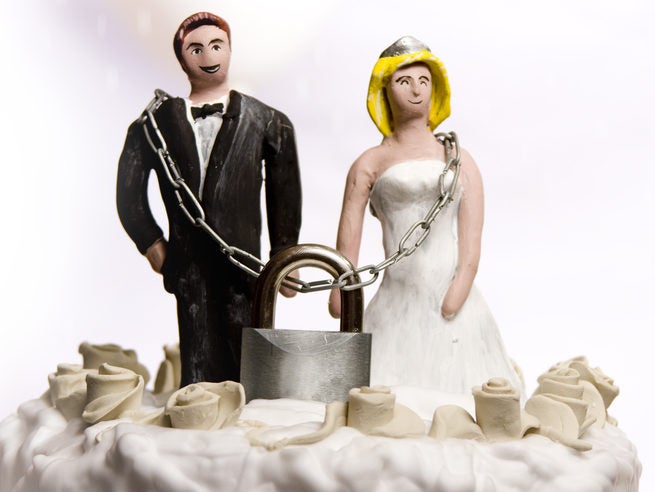
- Victims will have anonymity from moment allegation is made
- Restrictions are modelled on those applied to sex offence cases
- Anonymity can be waived if declared in writing by victims over 16
- Move aims to increase number of prosecutions
Victims and alleged victims of forced marriage are to be given lifelong anonymity, the Government has said.
The measure, being introduced through an amendment to the Policing and Crime Bill which was tabled on 7 May, will apply to all victims of forced marriage in England and Wales.
The move is intended to encourage victims to come forward in an effort to increase the number of prosecutions for the crime.
It is believed that so far there has been only one conviction for the new offence of forced marriage, which came into force in the summer of 2014.
Karen Bradley, minister for Preventing Abuse, Exploitation and Crime, said: “Forced marriage is an abhorrent practice that can destroy lives.
“It takes great courage for those subjected to this crime to speak out, especially as it is often committed by the very people they love and trust, and we need to do all we can to give them the support they need.
“Lifelong anonymity will give more victims the confidence to come forward and seek justice.”
The new provisions, which will give victims anonymity from the time an allegation of forced marriage is made, are modeled on the anonymity already in place for sex offence victims and victims of female genital mutilation.
A Home Office spokeswoman said: “This provision is specifically aimed at protecting the identity of (alleged or proven) victims of forced marriage from the point of investigation onwards. It does not prohibit the reporting of forced marriage prosecution cases by the media.”
The anonymity would cover both names and photographs as well as any other information which – on its own or combined with other material – would be likely to result in a victim being identified.
The publication ban will cover traditional print and broadcast media but also social media, including Twitter and Facebook.
It will also allow victims to surrender their anonymity – which they will have to do in writing, and must be over the age of 16 – or allow a court to lift the anonymity under the same conditions as those which apply in relation to anonymity for sex offence victims.
The provision, however, might also have the effect of discouraging reporting of forced marriage prosecutions, because a side-effect will be that the husbands of such women, as well as their parents or other relatives accused of having forced the victim into the unwanted union, are also likely to have to remain nameless to preserve the victim’s anonymity.
(Picture: Shutterstock)
Email pged@pressgazette.co.uk to point out mistakes, provide story tips or send in a letter for publication on our "Letters Page" blog
